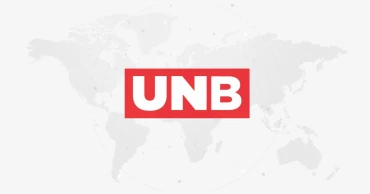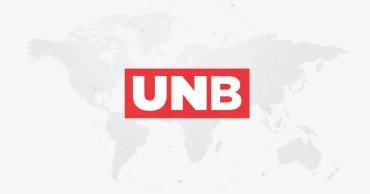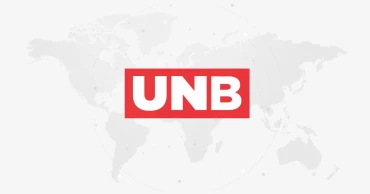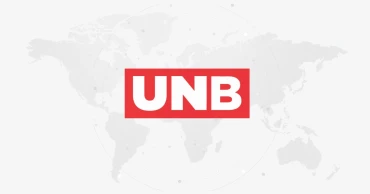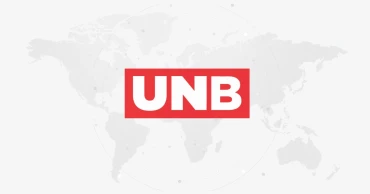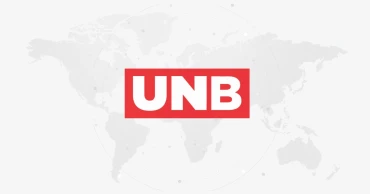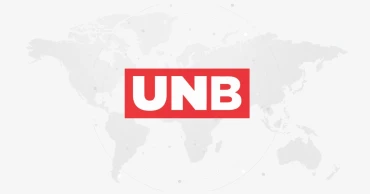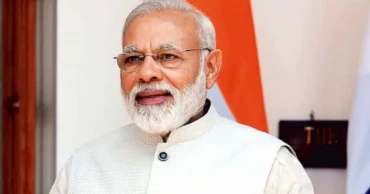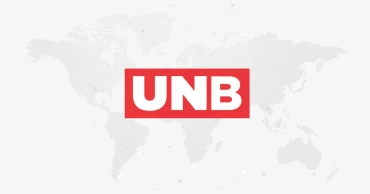G20
Amazon Prime Video Original Lineup for April 2025: Most Hyped Web Series and Films
As a leading OTT (Over-The-Top) platform, Amazon Prime Video continues to expand its diverse catalog with fresh content and returning favorites. The April 2025 lineup spans animation, action, crime, thriller, and comedy. The collection features fresh premieres, eagerly awaited returns, and hidden gems, promising to take over your watchlist. Let’s take a closer look at the must-watch titles set to dominate conversations this month.
10 Must-watch Original Shows on Amazon Prime Video this April
.
The Bondsman / Action Horror / April 03, 2025
Featuring Kevin Bacon in the lead role, this action drama thrives with Erik Oleson as the showrunner and Grainger David as its creator. The writing credit also goes to Satinder Kaur, Satinder Kaur, and Nina Kim.
This supernatural horror follows Hub Halloran, a resurrected bounty hunter granted an unexpected second chance at life. As he revels in love and a long-dormant musical career, he soon discovers that his old profession now comes with a sinister twist.
Read more: Top 10 Netflix English Originals to Watch in April 2025: Movies, Series, and Shows
The supporting cast includes Jennifer Nettles, Beth Grant, Damon Herriman, Maxwell Jenkins, and Jolene Purdy.
The episodes' directors are Sanaa Hamri, Lauren Wolkstein, and Thor Freudenthal.
Oleson, Bacon, and David executive produced this series along with Jason Blum, Chris McCumber, Jeremy Gold, Chris Dickie, and Paul Shapiro.
Mobile Suit Gundam GQuuuuuuX / Sci-fi Anime / April 08, 2025
Created by Yoshiyuki Tomino and Hajime Yatate, this Japanese series is the 16th main entry in the Gundam franchise. Continuing the trend set by The Witch from Mercury (2022–2023), this marks the second consecutive series to feature a female protagonist. This time it shares the spotlight with both female and male co-leads.
Read more: March 2025 K-Drama Fever: 10 Most-hyped Shows Worth Binge-Watching
Written by Hideaki Anno and Yoji Enokido, this Sunrise and Studio Khara production is the second Gundam TV series to premiere in Japan's Reiwa era.
This military science fiction follows a space colony teenager whose life takes a drastic turn after befriending a refugee and entering the world of underground mecha duels. Her reality is further upended by the arrival of a mysterious Gundam and its young pilot- both hunted by the authorities.
Under the direction of Kazuya Tsurumaki, this action-adventure showcases the voice cast that includes Tomoyo Kurosawa, Yui Ishikawa, Shimba Tsuchiya, and Yuuki Shin.
Bhool Chuk Maaf / Sci-fi Comedy / April 10, 2025
Backed by Dinesh Vijan under the banner of Maddock Films, this Bollywood movie flourishes with Karan Sharma as its director and writer.
In this sci-fi tale, a groom-to-be eagerly awaits his wedding, now just a day away. However, the Haldi ceremony inexplicably repeats itself in an endless time loop, turning his excitement into confusion and despair.
Read more: 12 Most Anticipated South Indian Movies Releasing in March 2025
The romantic comedy stars Rajkummar Rao and Wamiqa Gabbi, supported by Kumud Mishra, Sadia Khateeb, Revathi, and Sharib Hashmi.
G20 / Action Thriller / April 10, 2025
Story by Logan Miller and Noah Miller, this action film takes shape courtesy of screenplay writers Caitlin Parrish, Logan Miller, Noah Miller, and Erica Weiss.
The story follows U.S. President Danielle Sutton as she fights to protect her family, world leaders, and global stability when terrorists seize the G20 summit in Cape Town, South Africa.
Directed by Patricia Riggen, this thriller emerges under the production of Amazon MGM Studios, JuVee Productions, Mad Chance Productions, and MRC.
Read more: March 2025 Bollywood Movie Releases: Top 10 Most-Anticipated Hindi Films to Watch
Viola Davis, Clark Gregg, Marsai Martin, Anthony Anderson, Ramon Rodriguez, Elizabeth Marvel, Douglas Hodge, Antony Starr, and Sabrina Impacciatore assume the key characters.
Godfather of Harlem (Season 4) / Crime Drama / April 13, 2025
Created by Paul Eckstein and Chris Brancato, this Primetime Emmy Award Winning series boasts production by Chris Brancato Inc., Significant Productions, and 20th Television.
This gangster saga follows crime boss Bumpy Johnson, who returns from prison in the 1960s to reclaim Harlem from the Italian mob. It forges a risky alliance with Malcolm X amid rising political and criminal turmoil.
Season 4 is penned by Stephen Schiff, Benjamin Cavell, Tanya Barfield, Salvatore Stabile, Michael Panes, Kyle Hamilton, and Angelica Cheri, along with Chris Brancato.
Read more: Top Amazon Prime Originals to Binge-Watch in March 2025
In the new season, Bumpy will battle the Mafia and newcomer Frank Lucas, Malcolm X’s assassination forces him to confront his daughter’s ties to the Black Panthers.
The gangster series stars Forest Whitaker, Lucy Fry, Ilfenesh Hadera, Antoinette Crowe-Legacy, Arthur J. Nascarella, Erik LaRay Harvey, Richard D'Alessandro, and Evander Duck Jr.
New faces appearing in the crime series are Rome Flynn, Susannah Rogers, Liv Symone, Michael Benjamin Washington, and Willie C. Carpenter.
11 months ago
The African Union is joining the G20, a powerful acknowledgement of a continent of 1 billion people
The group of the world's 20 leading economies is welcoming the African Union as a permanent member, a powerful acknowledgement of Africa as its more than 50 countries seek a more important role on the global stage.
U.S. President Joe Biden called last year for the AU’s permanent membership in the G20, saying it’s been “a long time in coming.” Indian Prime Minister Narendra Modi has said the bloc was invited to join during the G20 summit his country is hosting this week.
The African Union has advocated for full membership for seven years, spokesperson Ebba Kalondo said. Until now, South Africa was the bloc's only G20 member.
Here’s a look at the AU and what its membership represents in a world where Africa is central to discussions about climate change, food security, migration and other issues.
Read: India hopes for progress on global agenda as G20 leaders meet despite rifts over the war in Ukraine
WHAT DOES THIS MEAN FOR AFRICA?Permanent G20 membership signals the rise of a continent whose young population of 1.3 billion is set to double by 2050 and make up a quarter of the planet's people.
The AU's 55 member states, which include the disputed Western Sahara, have pressed for meaningful roles in the global bodies that long represented a now faded post-World War II order, including the United Nations Security Council. They also want reforms to a global financial system - including the World Bank and other entities - that forces African countries to pay more than others to borrow money, deepening their debt.
Africa is increasingly courting investment and political interest from a new generation of global powers beyond the U.S. and the continent's former European colonizers. China is Africa’s largest trading partner and one of its largest lenders. Russia is its leading arms provider. Gulf nations have become some of the continent’s biggest investors. Turkey ’s largest overseas military base and embassy are in Somalia. Israel and Iran are increasing their outreach in search of partners.
African leaders have impatiently challenged the framing of the continent as a passive victim of war, extremism, hunger and disaster that's pressured to take one side or another among global powers. Some would prefer to be brokers, as shown by African peace efforts following Russia’s invasion of Ukraine.
Granting the African Union membership in the G20 is a step that recognizes the continent as a global power in itself.
Read: G20 must urgently tackle global poverty with financial inclusion: deVere
WHAT DOES THE AFRICAN UNION BRING TO THE G20?With full G20 membership, the AU can represent a continent that's home to the world's largest free trade area. It's also enormously rich in the resources the world needs to combat climate change, which Africa contributes to the least but is affected by the most.
The African continent has 60% of the world’s renewable energy assets and more than 30% of the minerals key to renewable and low-carbon technologies. Congo alone has almost half of the world’s cobalt, a metal essential for lithium-ion batteries, according to a United Nations report on Africa's economic development released last month.
African leaders are tired of watching outsiders take the continent’s resources for processing and profits elsewhere and want more industrial development closer to home to benefit their economies.
Take Africa’s natural assets into account and the continent is immensely wealthy, Kenyan President William Ruto said at the first Africa Climate Summit this week. The gathering in Nairobi ended with a call for fairer treatment by financial institutions, the delivery of rich countries’ long-promised $100 billion a year in climate financing for developing nations and a global tax on fossil fuels.
Finding a common position among the AU's member states, from the economic powers of Nigeria and Ethiopia to some of the world’s poorest nations, can be a challenge. And the AU itself has long been urged by some Africans to be more forceful in its responses to coups and other crises.
The body's rotating chairmanship, which changes annually, also gets in the way of consistency, but Africa “will need to speak with one voice if it hopes to influence G20 decision-making,” Ibrahim Assane Mayaki, a former prime minister of Niger, and Daouda Sembene, a former executive director of the International Monetary Fund, wrote in Project Syndicate this year.
Read: China's Xi will skip G20 summit in India during a period of soured bilateral relations
African leaders have shown their willingness to take such collective action. During the COVID-19 pandemic, they united in loudly criticizing the hoarding of vaccines by rich countries and teamed up to pursue bulk purchases of supplies for the continent.
Now, as a high-profile G20 member, Africa’s demands will be harder to ignore.
2 years ago
PM Hasina’s participation at G20 Summit to add yet another feather to ‘Golden Chapter’ in Dhaka-Delhi ties: Momen
- Foreign Minister Dr AK Abdul Momen on Thursday said Prime Minister Sheikh Hasina’s participation at the G20 Summit in New Delhi will add yet another feather to the ‘Golden Chapter’ in Dhaka-Delhi ties.
"We look forward to working together with G20 partners to find multi-dimensional solutions to the multiple crises plaguing our world," he said.
The Foreign Minister was speaking as the chief guest at the opening session of a discussion titled “G20 Summit: Dhaka to New Delhi”, at Foreign Service Academy.
Indian High Commissioner to Bangladesh Pranay Verma, Ambassador Mohammad Ziauddin, who is discharging his responsibilities as the Bangladesh Sherpa for G20, and President of the Bangladesh Women Chamber of Commerce and Industry and G20 Employer Advocate Selima Ahmad, MP spoke at the opening session.
The recognition by G20 — under the Indian Presidency — that the status quo is no longer sustainable for multilateralism to function is a major turn-around, Momen said.
The Foreign Minister hoped that Bangladesh can make visible and meaningful contributions to the G20 processes through multi-stakeholder participation.
The Prime Minister has been invited to the Summit to be held in New Delhi on September 9-10, and she guided the nature and level of engagements with the different G20 processes.
“We thank them as they have honored us. We are among the nine countries which are invited. We feel very honored,” Foreign Minister Momen told reporters at a media briefing at the Ministry of Foreign Affairs.
Read more: Bangladesh's prosperity under Sheikh Hasina's leadership highly commendable: US Congressman Robert Pittenger
2 years ago
FM visiting India to attend G20 development ministers' meeting
Bangladesh's Foreign Minister Dr AK Abdul Momen is visiting India at the invitation of his Indian counterpart, Dr S Jaishankar.
He will attend the G20 Development Ministers’ Meeting under the G20 Indian Presidency which will end on June 13 in Varanasi, Uttar Pradesh.
Dr Momen is expected to make interventions in different sessions of DMM on June 12, according to the Ministry of Foreign Affairs.
Union Minister of External Affairs Dr S. Jaishankar will chair the meeting.
Read: Bangladesh, UN to work closely to achieve SDGs
The Varanasi Development Ministers’ Meeting takes place amidst mounting developmental challenges that have been further aggravated by economic slowdown, debt distress, impacts of climate change, pollution and biodiversity loss, growing poverty and inequality, food and energy insecurity, cost-of-living crisis, global supply-chain disruptions, and geo-political conflicts and tensions.
The G20 Development Ministerial meeting will be an opportunity to collectively agree on actions for accelerating achievement of the SDGs and foster synergies between the development, environment and climate agendas while avoiding costly trade-offs that hold back progress for the developing countries, according to MEA.
The meeting follows the Voice of the Global South Summit that was hosted by India in January 2023, and the decisions taken at the Varanasi meeting will also contribute to the United Nations SDG Summit which will take place in September in New York.
Read: Awami League's policy unchanged despite allowing Jamaat rally: Home Minister
The meeting will consist of two main sessions, one on "Multilateralism: Collective Actions for Accelerating Progress towards SDGs” and another on "Green Development: A LiFE (Lifestyle for Environment) Approach”.
The Development Ministers’ Meeting was preceded by the fourth and final Development Working Group (DWG) Meeting, which was held in Delhi from June 6-9.
The DWG, while building on the crucial work done by previous G20 presidencies, has carried forward its mandate of enhancing G20's contribution to accelerating progress towards SDGs and strengthening G20 long-term vision in this regard including by strengthening G20 efforts towards fostering sustainable, inclusive and resilient economic growth.
Cultural programmes, exhibitions and excursions have also been organized to provide the delegates a glimpse into the rich culture and traditions of Varanasi, one of the oldest cities in the world.
Read more: With G20 event, India seeks to project normalcy in disputed Kashmir
A total of 200 delegates are expected to attend the meeting.
2 years ago
With G20 event, India seeks to project normalcy in disputed Kashmir
As India prepares to host a meeting of tourism officials from the Group of 20 in the disputed region of Kashmir, authorities have deployed elite commandos and stepped up security in the region's largest city.
The meeting will be the first significant international event in Kashmir since New Delhi stripped the Muslim-majority region of semi-autonomy in 2019. Indian authorities are hoping the meeting will show that the controversial changes have brought "peace and prosperity" to the region.
Since the 2019 changes, the city, known for rolling Himalayan foothills and exquisitely decorated houseboats, has become a major domestic tourist destination. Hotels have been mostly booked out for months. Kashmir has also drawn millions of visitors, who enjoy a strange peace kept by ubiquitous security checkpoints, armored vehicles and patrolling soldiers.
Also Read: Indian troops kill 2 rebels in Kashmir in ongoing operations
For the G20 meeting, the city has spruced up its commercial center and roads leading to the convention center on Dal Lake, while police have increased security even further, placing a massive security cordon around the site.
On a recent Wednesday, gun-toting naval commandos in rubber boats mingled with tourists in canary-yellow gondolas.
Paul Staniland, a political scientist who studies South Asia at the University of Chicago, said the G20 meeting is "in line with Indian government policy to symbolically project normalcy and stability in Kashmir," and is unlikely to herald a change in policy.
ALso Read: India revives civil militia after Hindu killings in Kashmir
"The meeting is good and it could boost tourism," said college student Mufeed Hilal. "But we also want to see the Kashmir issue resolved. That is our basic problem."
___
REGIONAL NEIGHBORS AND UN HUMAN RIGHTS EXPERT CRITICIZE KASHMIR MEETING
Pakistan, which controls a part of Kashmir but, like India, claims the entire territory, has slammed New Delhi for holding the meeting in Srinagar.
Speaking on the sidelines of a recent Shanghai Cooperation Organization meeting in India, foreign minister Bilawal Bhutto Zardari said the choice of location showed India's "pettiness" and was a "show of arrogance to the world."
Also Read: 2 kids among 6 people die in Kashmir village attack: Police
India's foreign minister, Subrahmanyam Jaishankar, dismissed the Pakistani minister's comments, saying that he was not going to debate the issue "with a country which has nothing to do with the G20," referring to the fact that Pakistan is not a member of the group.
The G20, made up of the world's largest economies, has a rolling presidency with a different member state in charge of the group's agenda and priorities each year. India is steering the group in 2023.
China also criticized India's plan to hold the meeting in Srinagar.
"China firmly opposes holding any form of G20 meeting in disputed areas and China will not attend such a meeting," Foreign Ministry spokesperson Wang Wenbin told reporters at a daily briefing Friday.
Last month, China skipped another G20 meeting held in the disputed region Ladakh, where Indian and Chinese soldiers are locked in a bitter military standoff high in the mountains after 20 Indian and four Chinese soldiers were killed in a hand-to-hand melee in 2020.
A U.N. human rights expert on Monday said the meeting would support a "facade of normalcy" while "massive human rights violations" continue in the region.
"The government of India is seeking to normalise what some have described as a military occupation by instrumentalising a G20 meeting and portray an international seal of approval," said Fernand de Varennes, the special rapporteur on minority issues, in a statement.
India's mission at the U.N. in Geneva rejected the statement as "baseless" and "unwarranted allegations." In a tweet on Tuesday, it said it was India's "prerogative to host its meetings in any part of the country."
India also held G20 tourism meetings in the states of West Bengal and Gujarat earlier this year, and one more is scheduled in Goa next month.
___
SEARCHES AND PATROLS REDOUBLE AHEAD OF MEETING
Intrusive security measures have been a fact of life in Indian-controlled Kashmir since 1989, when a violent separatist insurgency erupted and Indian forces replied with a brutal crackdown. While the armed rebellion was largely suppressed, the region remains one of the world's most heavily militarized territory, with hundreds of thousands of Indian troops deployed.
For decades, a typical Kashmiri's day has included frisking and questioning by police and soldiers, house raids and random searches of cars. But after New Delhi took the region under its direct control, authorities have seized scores of homes and arrested hundreds under stringent anti-terror laws. The government says such actions are necessary to stop what it calls a "terror ecosystem."
Mehbooba Mufti, the region's former top elected official, said that police had detained hundreds of Kashmiris ahead of the meeting. In a party newsletter, she alleged that there has been an "unprecedented surge in arrests, raids, surveillance and persecution of our people" ahead of the event.
In a statement on Monday, police said there is a "need to enhance the security measures at vulnerable locations to avoid any chance of terrorist attack during the G20" meeting.
Kashmir has remained on edge since the 2019 changes, as authorities put in place new laws that critics and many Kashmiris fear could transform the region's demographics. In New Delhi's effort to shape what it calls "Naya Kashmir," or a "new Kashmir," the territory's people and its press have been largely silenced.
Although violence has ebbed in last few years, fighting between government forces and rebels opposed to Indian rule still erupts periodically. At least 10 Indian soldiers, including five members of army special forces, were killed recently in two militant attacks in Jammu region.
2 years ago
Dhaka urges G20 countries to make concerted efforts to overcome global challenges
State Minister for Foreign Affairs Md Shahriar Alam on Friday said the G20 platform can provide means of implementation, including finance, technology and capacity-building to the countries of the Global South in realizing the SDGs.
He was speaking as a panelist on the possible role of the G20 in the evolving geopolitical context at a panel discussion of the 8th edition of Raisina Dialogue in New Delhi.
State Minister Alam called upon the G20 countries to make concerted efforts in overcoming the current global challenges like climate change, post-pandemic recovery, disruption of supply chain, food insecurity as well as energy and economic crisis.
The State Minister also drew the attention of the global community, including the G20 nations, to Bangladesh’s remarkable development journey under the dynamic leadership of Prime Minister Sheikh Hasina.
He urged the other nations to be part of this wonderful journey.
Read more: Dhaka urges G20 countries to take corrective actions to reverse trend of global warming
Alam also asked the G20 nations to actively engage in ensuring immediate repatriation of forcibly displaced Rohingyas from Bangladesh to Myanmar.
The State Minister was joined by Foreign Ministers of Canada and Foreign Ministry of Mexico and High Representative of the EU for Foreign Affairs and Security Policy in the panel discussion.
2 years ago
Dhaka, Delhi to hold foreign secretary-level talks in Dhaka Wednesday
Bangladesh and India are scheduled to hold Foreign Office Consultations (FOC) on Wednesday, which will review the ongoing cooperation between the two countries apart from the issues of mutual interests.
Indian Foreign Secretary Vinay Kwatra will arrive in Dhaka after the completion of his two-day official visit to Nepal from February 13 to 14.
Foreign Secretary Masud Bin Momen and his Indian counterpart will discuss all the bilateral issues at the FOC.
Kwatra assumed charge as foreign secretary on May 1 last year, and this will be his first Bangladesh visit after that.
Preparatory works regarding the FOC are now underway, Ministry of Foreign Affairs spokesperson Seheli Sabrin told the reporters at a weekly briefing Thursday.
She said the last FOC was held on January 29, 2021, in New Delhi, India.
Prime Minister Sheikh Hasina is likely to attend the 18th Group of Twenty (G20) Summit which will take place in New Delhi on September 9-10 this year.
Indian Prime Minister Narendra Modi invited her Bangladesh counterpart Hasina to attend the Summit.
Meanwhile, Foreign Minister AK Abdul Momen will attend the G20 foreign ministers' meeting in New Delhi on March 1-2.
The issues related to the upcoming visits by the prime minister and foreign minister are likely to be discussed during the Indian foreign secretary’s visits, said a diplomatic source.
Kwatra is likely to meet the prime minister and foreign minister during his visit.
India, which holds the presidency of the G20 from December 1 2022 to November 30, 2023, invited Bangladesh as a "guest country" in its all meetings, Seheli said.
Bangladesh sees its series of engagements with the G20 under India's presidency this year as a "big honour" for it.
"We will raise our issues there. It is a big honour for us. We should be prudent," Momen told the reporters at the Ministry of Foreign Affairs recently, noting that Bangladesh is the only South Asian country invited by the host.
The G20 is the premier forum for international economic cooperation, which plays an "important role" in shaping and strengthening global architecture and governance on all major international economic issues.
India invited Bangladesh, Egypt, Mauritius, the Netherlands, Nigeria, Oman, Singapore, Spain and the United Arab Emirates (UAE) as guest countries to its meetings and summit, according to the Ministry of External Affairs, India.
Apart from the G20 leaders, Egyptian President Abdel Fattah Saeed Hussein Khalil El-Sisi, Mauritian Prime Minister Pravind Kumar Jugnauth, Dutch Prime Minister Mark Rutte, Nigerian President Muhammadu Buhari, Oman Head of State Sultan Haitham bin Tarik, Singapore Prime Minister Lee Hsien Loong, Spanish Prime Minister Pedro Sánchez, UAE President Sheikh Mohamed bin Zayed Al Nahyan were invited to the G20 Summit.
Hasina paid a state visit to India from September 5 to 8 last year at the invitation of Modi.
The G20 comprises 19 countries – Argentina, Australia, Brazil, Canada, China, France, Germany, India, Indonesia, Italy, Japan, South Korea, Mexico, Russia, Saudi Arabia, South Africa, Türkiye, the UK, the US and the European Union.
The G20 members represent around 85 percent of the global GDP, over 75 percent of the global trade, and about two-thirds of the world population.
Read more: Being invited to G20 Summit is a big honour for Bangladesh, says Momen
3 years ago
Being invited to G20 Summit is a big honour for Bangladesh, says Momen
Bangladesh sees its series of engagements with the Group of Twenty (G20) under India’s Presidency this year as a “big honour” for the country.
“We will raise our issues there. It is a big honour for us. We should be prudent,” Foreign Minister Dr AK Abdul Momen told reporters at the Ministry of Foreign Affairs on Monday, noting that Bangladesh is the only South Asian country invited by the host.
The Group of Twenty (G20) is the premier forum for international economic cooperation, which plays an “important role” in shaping and strengthening global architecture and governance on all major international economic issues.
India holds the Presidency of the G20 from 1 December 2022 to 30 November 2023.
Read: Argentine foreign minister will visit Dhaka late Feb, asked to bring Messi with him: Momen
Prime Minister Sheikh Hasina has been invited to attend the 18th G20 Heads of States and Governments Summit, which will take place during September 9-10 this year in New Delhi.
Momen said Hasina will be attending the Summit in New Delhi in September.
India has invited Bangladesh, Egypt, Mauritius, the Netherlands, Nigeria, Oman, Singapore, Spain and the United Arab Emirates (UAE) as guest countries to its meetings and summit, according to the Ministry of External Affairs, India.
Apart from the G20 leaders, Egyptian President Abdel Fattah Saeed Hussein Khalil El-Sisi, Mauritian Prime Minister Pravind Kumar Jugnauth, Dutch Prime Minister Mark Rutte, Nigerian President Muhammadu Buhari, Oman Head of State Sultan Haitham bin Tarik, Singapore Prime Minister Lee Hsien Loong, Spanish Prime Minister Pedro Sánchez, UAE President Sheikh Mohamed bin Zayed Al Nahyan have been invited to the G20 Summit.
Read: Ambassador Lee visits South Korea-supported innovative ICT-integrated pilot classroom in Dhaka
Meanwhile, Momen will attend the G20 foreign ministers' meeting in New Delhi on March 1-2.
Hasina paid a state visit to India from September 5 to 8 last year at the invitation of her Indian counterpart Narendra Modi.
Ahead of the Prime Minister and Foreign Minister’s visits, Vinay Kwatra will be in Dhaka in the third week of February to have bilateral talks with his Bangladesh counterpart Masud Bin Momen, said a diplomatic source.
Kwatra assumed charge as foreign secretary on May 1 last year.
Read More: US supports India for G20 presidency
The two-day first G20 International Financial Architecture Working Group meeting under the G20 Indian Presidency began on January 30 in Chandigarh.
The Group of Twenty (G20) comprises 19 countries - Argentina, Australia, Brazil, Canada, China, France, Germany, India, Indonesia, Italy, Japan, Republic of Korea, Mexico, Russia, Saudi Arabia, South Africa, Türkiye, United Kingdom and United States and the European Union.
The G20 members represent around 85% of the global GDP, over 75% of the global trade, and about two-thirds of the world population.
Read more: India’s G20 agenda to be inclusive, ambitious, action-oriented, decisive: Modi
3 years ago
India’s G20 agenda to be inclusive, ambitious, action-oriented, decisive: Modi
Indian Prime Minister Narendra Modi has said India’s G20 agenda will be inclusive, ambitious, action-oriented, and decisive.
"Let us join together to make India's G20 Presidency a Presidency of healing, harmony and hope. Let us work together to shape a new paradigm - of human-centric globalisation," he said.
In an article titled "India's G20 Presidency to promote the universal sense of one-ness" Prime Minister Modi said the previous 17 Presidencies of the G20 delivered significant results - for ensuring macro-economic stability, rationalising international taxation, relieving debt-burden on countries, among many other outcomes.
"We will benefit from these achievements, and build further upon them," the article reads.
"However, as India assumes this important mantle, I ask myself - can the G20 go further still? Can we catalyse a fundamental mindset shift, to benefit humanity as a whole? I believe we can," he said.
India, as G20 Presidency, will be inviting Bangladesh, Egypt, Mauritius, Netherlands, Nigeria, Oman, Singapore, Spain and the United Arab Emirates (UAE) as guest countries to its meetings and Summit, the Ministry of External Affairs, India announced in September this year.
Read more: G20: As Lavrov watches on, UK PM Sunak criticises Russia’s “barbaric” war
Under its Presidency, India is expected to host over 200 G20 meetings across the country, beginning December 2022.
"Our mindsets are shaped by our circumstances. Through all of history, humanity lived in scarcity. We fought for limited resources, because our survival depended on denying them to others. Confrontation and competition - between ideas, ideologies and identities - became the norm.
Unfortunately, we remain trapped in the same zero-sum mindset even today. We see it when countries fight over territory or resources. We see it when supplies of essential goods are weaponised. We see it when vaccines are hoarded by a few, even as billions remain vulnerable.
Some may argue that confrontation and greed are just human nature. I disagree. If humans were inherently selfish, what would explain the lasting appeal of so many spiritual traditions that advocate the fundamental one-ness of us all?
One such tradition, popular in India, sees all living beings, and even inanimate things, as composed of the same five basic elements – the panch tatva of earth, water, fire, air and space. Harmony among these elements - within us and between us - is essential for our physical, social and environmental well-being.
India's G20 Presidency will work to promote this universal sense of one-ness. Hence our theme - 'One Earth, One Family, One Future'.
This is not just a slogan. It takes into account recent changes in human circumstances, which we have collectively failed to appreciate.
Today, we have the means to produce enough to meet the basic needs of all people in the world.
Today, we do not need to fight for our survival - our era need not be one of war. Indeed, it must not be one!
Today, the greatest challenges we face - climate change, terrorism, and pandemics - can be solved not by fighting each other, but only by acting together.
Fortunately, today's technology also gives us the means to address problems on a humanity-wide scale.
The massive virtual worlds that we inhabit today demonstrate the scalability of digital technologies.
Housing one-sixth of humanity, and with its immense diversity of languages, religions, customs and beliefs, India is a microcosm of the world.
With the oldest-known traditions of collective decision-making, India contributes to the foundational DNA of democracy.
As the mother of democracy, India's national consensus is forged not by diktat, but by blending millions of free voices into one harmonious melody.
Today, India is the fastest growing large economy. Our citizen-centric governance model takes care of even our most marginalised citizens, while nurturing the creative genius of our talented youth.
We have tried to make national development not an exercise in top-down governance, but rather a citizen-led 'people's movement'.
We have leveraged technology to create digital public goods that are open, inclusive and inter-operable. These have delivered revolutionary progress in fields as varied as social protection, financial inclusion, and electronic payments.
For all these reasons, India's experiences can provide insights for possible global solutions.
During our G20 Presidency, we shall present India's experiences, learnings and models as possible templates for others, particularly the developing world.
Our G20 priorities will be shaped in consultation with not just our G20 partners, but also our fellow-travellers in the global South, whose voice often goes unheard.
Our priorities will focus on healing our 'One Earth', creating harmony within our 'One Family' and giving hope for our 'One Future'.
For healing our planet, we will encourage sustainable and environment-friendly lifestyles, based on India's tradition of trusteeship towards nature.
For promoting harmony within the human family, we will seek to depoliticise the global supply of food, fertilizers and medical products, so that geo-political tensions do not lead to humanitarian crises.
As in our own families, those whose needs are the greatest must always be our first concern.
For imbuing hope in our future generations, we will encourage an honest conversation among the most powerful countries - on mitigating risks posed by weapons of mass destruction and enhancing global security," Modi said.
Read more: US supports India for G20 presidency
3 years ago
US supports India for G20 presidency
The United States has supported India for the G20 presidency, US Secretary of State Antony Blinken tweeted on Sunday (November 13, 2022).
India’s External Affairs Minister S Jaishankar also tweeted as the two leaders met in Cambodia on the sidelines of the ASEAN Summit in Cambodia's Phnom Penh.
Blinken said that he met Jaishankar “to discuss ongoing efforts to expand our partnership and mitigate the effects of Russia’s war on Ukraine.”
Read more: Putin won’t be at G20 summit, avoiding possible confrontation with US
“The US supports India’s G20 Presidency," Blinken continued.
He made the points along with photographs of the two leaders and hashtag - #USIndiaAt75.
Jaishankar wrote that they discussed Ukraine, Indo-Pacific, energy, G20 and bilateral relations.
The development means India will preside over the G20 Summit from December 1.
Read more: G20 Presidency: India to invite Bangladesh as guest country
Earlier this week, Prime Minister Narendra Modi unveiled the logo, website and theme of India's G20 Presidency, according to The Hindustan Times.
“Notion of universal brotherhood is being reflected via the G20 logo. The lotus in the logo of G20 is a symbol of hope in these tough times," Modi said in a virtual address.
The Hindustan Times quoted Modi as saying that that G20 Presidency is not merely a diplomatic meeting for India, but it is a new responsibility and a measure of the world’s trust in India.
Read more: G20 finance leaders in Bali to tackle Ukraine, inflation
G20 is an intergovernmental forum comprising 19 countries and the European Union. It works to address major global challenges related to economy, climate change mitigation and sustainable development.
G20 or Group of Twenty is composed of most of the world's largest economies including both industrialised and developing nations.
3 years ago

